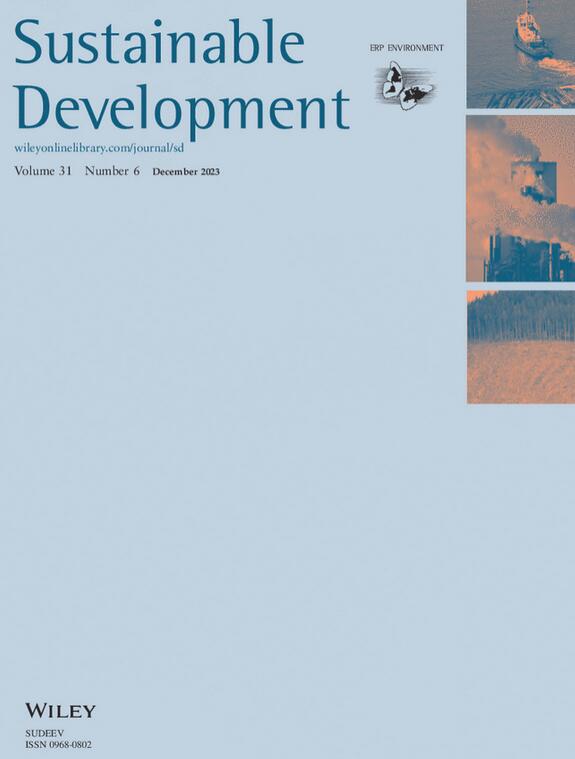揭示可持续发展的复杂性:调查 64 个国家的经济增长、全球化和人类发展对碳排放的影响
IF 8.2
1区 环境科学与生态学
Q1 DEVELOPMENT STUDIES
引用次数: 0
摘要
为了实现可持续发展目标,各国面临着在扩大经济活动的同时减轻污染的挑战。本研究采用面板自回归分布滞后法和面板非线性自回归分布滞后法,研究了全球化、经济发展、人类发展、工业化、不可再生能源和人口密度对 64 个国家碳排放(CO2)的影响。这项研究验证了中高收入和中低收入国家的环境库兹涅茨曲线假说。然而,低收入国家呈现出 U 型关系,而高收入国家则在一定程度上成功减缓了二氧化碳排放。分析表明,除了从全球化到二氧化碳排放的单向因果关系外,二氧化碳排放与其他变量之间存在双向因果关系。中上收入和中低收入国家的制造业依赖传统能源,这表明需要制定政策来推广可再生能源。研究结果对提高环境可持续性和实现可持续经济增长,同时减少二氧化碳排放以实现可持续发展目标具有重要的政策意义。本文章由计算机程序翻译,如有差异,请以英文原文为准。
Unveiling the complexities of sustainable development: An investigation of economic growth, globalization and human development on carbon emissions in 64 countries
To achieve Sustainable Development Goals, countries face the challenge of expanding economic activities while mitigating pollution. Using the panel autoregressive distributed lag and panel non‐linear autoregressive distributed lag approach, this study investigates the effects of globalization, economic development, human development, industrialization, non‐renewable energy, and population density on the carbon emissions (CO2) of 64 countries. This study validates the Environmental Kuznets Curve hypothesis in upper‐ and lower‐middle‐income countries. However, low‐income countries exhibit a U‐shaped relationship, while high‐income countries have successfully mitigated CO2 emissions to some extent. The analysis shows bidirectional causality between CO2 emissions and other variables, except for one‐way causality from globalization to CO2 emissions. Manufacturing in upper‐ and lower‐middle‐income countries depends on conventional energy sources, indicating the need for policies to promote renewable energy sources. The findings have significant policy implications for enhancing environmental sustainability and achieving sustainable economic growth while mitigating CO2 emissions to achieve the SDGs.
求助全文
通过发布文献求助,成功后即可免费获取论文全文。
去求助
来源期刊

Sustainable Development
Multiple-
CiteScore
17.30
自引率
11.20%
发文量
168
期刊介绍:
Sustainable Development is a publication that takes an interdisciplinary approach to explore and propose strategies for achieving sustainable development. Our aim is to discuss and address the challenges associated with sustainable development and the Sustainable Development Goals. All submissions are subjected to a thorough review process to ensure that our readers receive valuable and original content of the highest caliber.
 求助内容:
求助内容: 应助结果提醒方式:
应助结果提醒方式:


